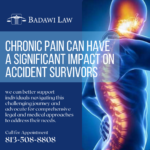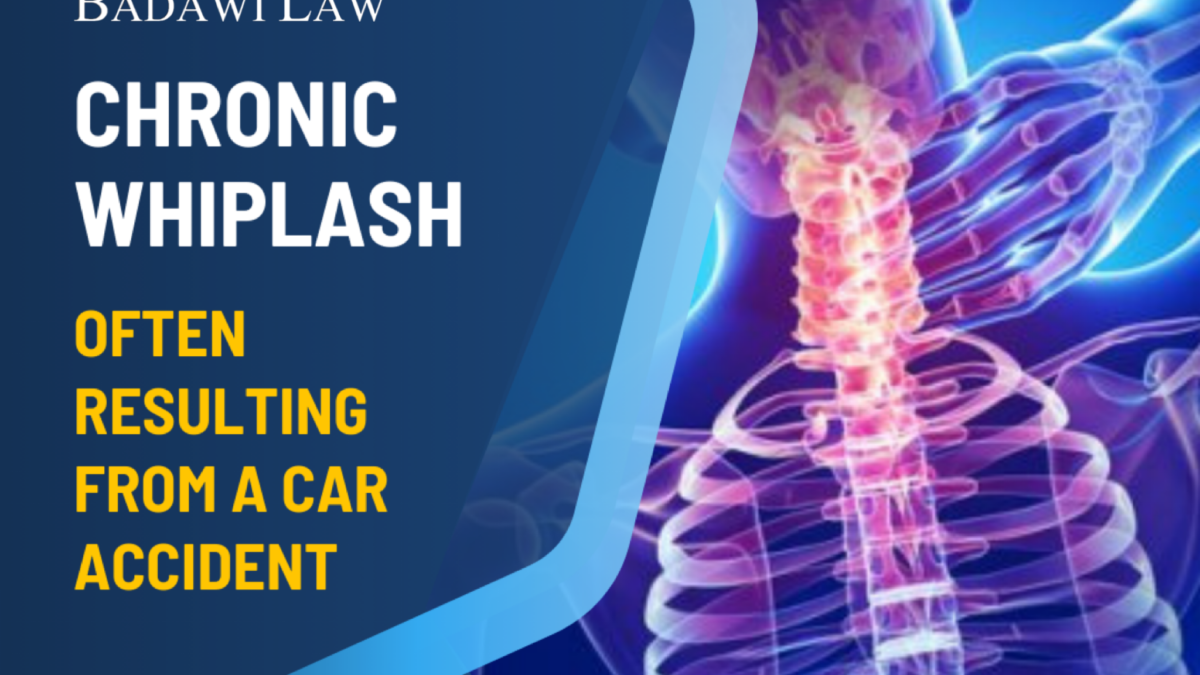
KNOW YOUR LEGAL RIGHTS
January 19, 2024
Chronic neck pain resulting from accidents can have significant physical and psychological effects on survivors
February 14, 2024Chronic pain can have a significant impact on accident survivors, affecting both their physical and psychological well-being. Here are some aspects to consider:
Physical Toll:
Persistent Discomfort:Accident survivors often experience ongoing physical discomfort, ranging from mild to severe pain. This can affect various parts of the body, depending on the nature of the injuries sustained.
Limited Mobility:Chronic pain may result in restricted movement and impaired mobility. This limitation can hinder the ability to perform daily activities and lead to a sedentary lifestyle, which may contribute to further health issues.
Fatigue:Dealing with constant pain can be exhausting. Survivors may experience fatigue, which can impact their energy levels and overall quality of life. Sleep Disturbances:
Chronic pain is often associated with sleep disturbances. Sleep quality may be compromised, leading to difficulties in falling or staying asleep, which can exacerbate the physical and mental toll.
Medication Side Effects:Many accident survivors manage chronic pain with medications. The side effects of these medications can add to the physical burden, including drowsiness, nausea, or dependency.
Psychological Toll:
Emotional Distress:Living with chronic pain can lead to emotional distress, including feelings of frustration, sadness, or anger. The constant struggle with pain can impact one's emotional well-being.
Isolation and Alienation:Chronic pain may result in social isolation as individuals may find it challenging to participate in social activities. This sense of alienation can contribute to feelings of loneliness and depression.
Anxiety and Fear:The uncertainty of pain levels and the impact on daily life can give rise to anxiety and fear. Survivors may worry about the future and how their condition will progress.
Impact on Relationships:Relationships with family and friends may be strained due to the challenges posed by chronic pain. Communication breakdowns and changes in dynamics are common.
Cognitive Impacts:Chronic pain can affect cognitive function, leading to difficulties in concentration and memory. This cognitive fog can further contribute to emotional distress.
Loss of Identity:For some survivors, chronic pain may lead to a loss of identity. Activities that once defined them may become challenging or impossible, impacting self-esteem and a sense of purpose.
Addressing the physical and psychological toll of chronic pain often requires a multidisciplinary approach, involving medical, psychological, and social support. It's crucial for survivors to receive comprehensive care to improve their overall well-being.





